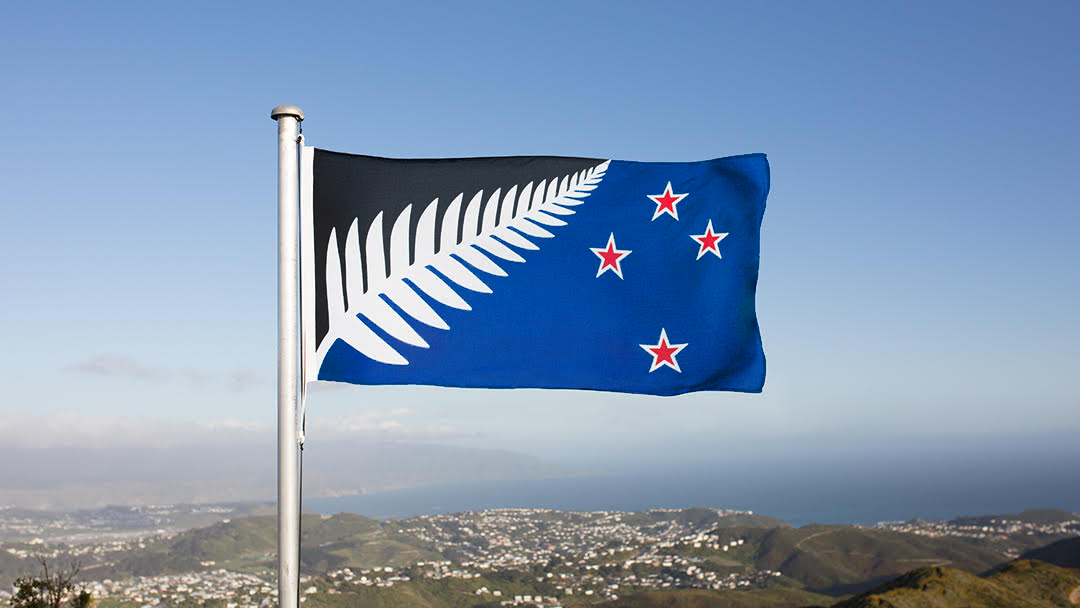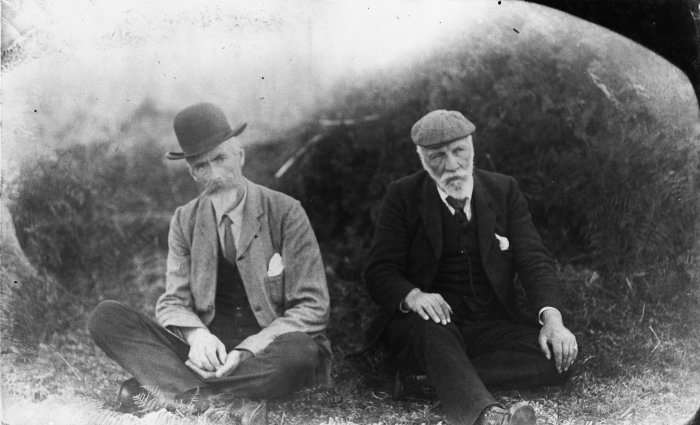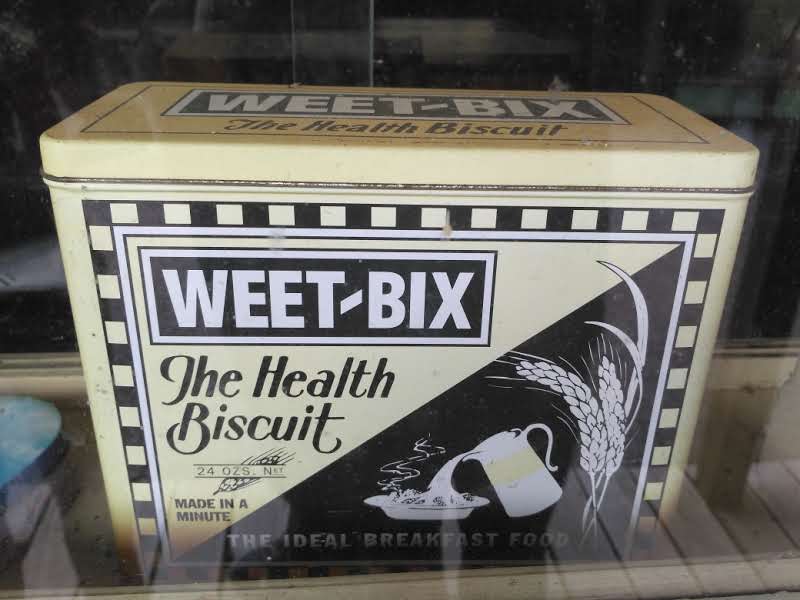|
Lockwood Silver Fern Flag
The black, white and blue silver fern flag is a proposed flag for New Zealand by architectural designer Kyle Lockwood. It was first designed using different colours in 2000. It was voted as the preferred alternative New Zealand flag in the first of two 2015–2016 New Zealand flag referendums, New Zealand flag referendums in December 2015, and was used in the second flag referendum in a binding contest against the Flag of New Zealand, current New Zealand flag. Despite a UMR poll predicting that the flag would earn only 35% of the vote, the Silver Fern Flag gained a significant minority in the March 2016 referendum with 43.2% of the vote, whilst the existing flag won with 56.6% of the vote. Design and symbolism The design of the flag combines the silver fern flag (toward the Hoist (flag), hoist) with the Southern Cross Flag, stars of the current national flag. The silver fern frond is a popular symbol of the people of New Zealand, while the stellar constellation known as the so ... [...More Info...] [...Related Items...] OR: [Wikipedia] [Google] [Baidu] |
2015–2016 New Zealand Flag Referendums
Two New Zealand flag referendums were held by the New Zealand Government in November/December 2015 and March 2016 to determine the nation's flag. The voting resulted in the retention of the current flag of New Zealand. Shortly after the referendum announcement, party leaders reviewed draft legislation and selected candidates for a Flag Consideration Panel. The purpose of this group was to publicise the process, seek flag submissions and suggestions from the public, and decide on a final shortlist of options. Open consultation and design solicitation garnered 10,292 design suggestions from the public, later reduced to a "longlist" of 40 designs and then a "shortlist" of four designs to contend in the first referendum. Following a petition, the shortlist was later expanded to include a fifth design, the Red Peak. The first referendum took place between 20 November and 11 December 2015 and asked, "If the New Zealand flag changes, which flag would you prefer?" Voters were present ... [...More Info...] [...Related Items...] OR: [Wikipedia] [Google] [Baidu] |
Aotearoa
''Aotearoa'' () is the current Māori-language name for New Zealand. The name was originally used by Māori in reference to only the North Island, with the name of the whole country being ''Aotearoa me Te Waipounamu'' ("North Island and South Island"). In the pre-European era, Māori did not have one name for the country as a whole. Several meanings for Aotearoa have been proposed for the name; the most popular translation usually given is "land of the long white cloud", or variations thereof. This refers to the cloud formations which helped early Polynesian navigators find the country. Beginning in the late 20th century, ''Aotearoa'' has become widespread in the bilingual names of national organisations and institutions. Since the 1990s, it has been customary for particular parties to sing the New Zealand national anthem, "God Defend New Zealand" (or "Aotearoa"), in both Māori and English, exposing the name to a wider audience. New Zealand English speakers pronounce the wo ... [...More Info...] [...Related Items...] OR: [Wikipedia] [Google] [Baidu] |
Weet-Bix
Weet-Bix is a whole-grain wheat breakfast cereal created and manufactured in Australia and New Zealand by the Sanitarium Health Food Company, and in South Africa by Bokomo. History Weet-Bix was developed by Bennison Osborne in Sydney, Australia in the mid-1920s. Osborne set out to make a product more palatable than Granose, a biscuit that was marketed by the Sanitarium Health Food Company at that time. On 19 August 1926, he lodged an application for registration of the trademark Weet-Bix, a name which he had devised. Production began at 659 Parramatta Road, Leichhardt, under the management of Osborne and with the financial backing of Arthur Shannon, who created the company "Grain Products" to manufacture the cereal. Osborne's friend Malcolm Ian Macfarlane from New Zealand joined him to take on a marketing role. The product was so successful that in October 1928, Shannon sold the rights in the product to the Australasian Conference Association Limited (Sanitarium Health Food ... [...More Info...] [...Related Items...] OR: [Wikipedia] [Google] [Baidu] |
Radio Live
Radio Live (stylised as Radio LIVE) was a nationwide Auckland-based New Zealand talkback, news and sport radio network owned and operated by MediaWorks New Zealand. It was formed by the 2005 split of talk and racing network Radio Pacific into a dedicated talk network which prioritised breaking news coverage (Radio Live) and a talk network which broadcast live horse racing and greyhound racing commentaries which initially retained the Radio Pacific name before a rebrand to Bsport and finally LiveSport. The network competes directly against NZME. station Newstalk ZB. In November 2018, it was announced that RadioLIVE would be merging with Mediaworks sister network, Magic, to form a talk-music radio hybrid known as Magic Talk, which started on 19 January 2019. Former TVNZ news presenter Peter Williams was the first host revealed for the new network. History Radio Pacific The network began as one, Auckland's Radio Pacific station, in 1978. Set up originally by talkback host Go ... [...More Info...] [...Related Items...] OR: [Wikipedia] [Google] [Baidu] |
New Zealand Media And Entertainment
New Zealand Media and Entertainment (abbreviated NZME) is a New Zealand newspaper, radio and digital media business. It was launched in 2014 as the formal merger of the New Zealand division of APN News & Media, APN New Zealand; The Radio Network, part of the Australian Radio Network; and GrabOne, New Zealand's biggest ecommerce website. NZME brands include flagship national newspaper ''The New Zealand Herald'', regional newspapers ''Bay of Plenty Times'', ''Rotorua Daily Post, Hawke's Bay Today'' and ''Northern Advocate''. Its radio division operates multiple networks including the country's largest commercial station Newstalk ZB, as well as The Hits, ZM, Radio Hauraki, Flava, Coast, and Gold. The company also owns the New Zealand rights to the iHeartRadio service. History NZME was formed in September 2014 through the merger of the New Zealand division of APN News & Media, APN New Zealand, The Radio Network, part of the Australian Radio Network., and GrabOne, New Zealand ... [...More Info...] [...Related Items...] OR: [Wikipedia] [Google] [Baidu] |
John Oliver (comedian)
John William Oliver (born 23 April 1977) is a British-American comedian, writer, producer, political commentator, actor, and television host. Oliver started his career as a stand-up comedian in the United Kingdom. He came to wider attention for his work in the United States on ''The Daily Show with Jon Stewart'' as its senior British correspondent from 2006 to 2013. Oliver won three Primetime Emmy Awards for writing for ''The Daily Show'' and was the show's guest host for an eight-week period in 2013. In addition, Oliver co-hosted the satirical comedy podcast ''The Bugle'' (2007–2015) with Andy Zaltzman, with whom Oliver had previously co-hosted the radio series '' Political Animal'', and hosted ''John Oliver's New York Stand-Up Show'' on Comedy Central from 2010 to 2013. He has also acted on television, most notably in a recurring role as Professor Ian Duncan on the NBC sitcom ''Community'', and in films, notably voice-over work in ''The Smurfs'' (2011), ''The Smurfs 2'' ... [...More Info...] [...Related Items...] OR: [Wikipedia] [Google] [Baidu] |
Paul Henry (broadcaster)
Paul Henry Hopes (born 4 August 1960), known professionally as Paul Henry, is a New Zealand radio and television broadcaster who was the host of the late night show ''The Paul Henry Show'' on New Zealand's TV3 which ended December 2014 so that Henry could host a new cross platform three-hour breakfast show Monday to Friday on TV3, RadioLive and on line. ''Paul Henry'' launched on 7 April 2015 and initially had an audience larger than the two shows it replaced on radio and TV. For nine months in 2012, he also co-hosted an Australian television show, ''Breakfast'', which ceased production on 30 November 2012, due to low ratings. Early life Paul Henry Hopes was born in Auckland, New Zealand, to Brian and Olive Hopes, on 4 August 1960. He attended Cockle Bay Primary in Howick, Auckland. His parents separated when he was 11, and in 1971 he moved with his English-born mother to Bristol, United Kingdom, where he finished his education and won a drama school scholarship. Paul and his m ... [...More Info...] [...Related Items...] OR: [Wikipedia] [Google] [Baidu] |
Hamish Keith
Hamish Henry Cordy Keith (born 15 August 1936) is a New Zealand writer, art curator, arts consultant and social commentator. Introduction Keith has been writing about and working with the arts in New Zealand for almost half a century. He has published a number of books on cultural and social history and cooking as well as the arts. He has contributed reviews and comment on the arts and urban and social issues for numerous magazines and newspapers since writing a weekly column of art news and reviews for the '' Auckland Star'' from 1962 to 1975. With Gordon H. Brown he wrote the first history of New Zealand art, ''An Introduction to New Zealand Painting'', published by William Collins in 1969. Keith worked at the Auckland Art Gallery from 1958 to 1970, as Student Assistant (1958–61), Assistant Keeper (1961–64), and Keeper of the Gallery (1965–70), before working as a freelance journalist, writer and art consultant. Keith has been, at times, a controversial figure in th ... [...More Info...] [...Related Items...] OR: [Wikipedia] [Google] [Baidu] |
John Key
Sir John Phillip Key (born 9 August 1961) is a New Zealand retired politician who served as the 38th prime minister of New Zealand, Prime Minister of New Zealand from 2008 to 2016 and as Leader of the New Zealand National Party from 2006 to 2016. After resigning from both posts in December 2016 and leaving politics, Key was appointed to the board of directors and role of chairman in several New Zealand corporations. Born in Auckland before moving to Christchurch when he was a child, Key attended the University of Canterbury and graduated in 1981 with a bachelor of commerce, Bachelor of Commerce. He began a career in the foreign exchange market in New Zealand before moving overseas to work for Merrill Lynch, in which he became head of global foreign exchange in 1995, a position he would hold for six years. In 1999 he was appointed a member of the Foreign Exchange Committee of the Federal Reserve Bank of New York until leaving in 2001. Key entered the New Zealand Parliament ... [...More Info...] [...Related Items...] OR: [Wikipedia] [Google] [Baidu] |
British Empire
The British Empire was composed of the dominions, colonies, protectorates, mandates, and other territories ruled or administered by the United Kingdom and its predecessor states. It began with the overseas possessions and trading posts established by England between the late 16th and early 18th centuries. At its height it was the largest empire in history and, for over a century, was the foremost global power. By 1913, the British Empire held sway over 412 million people, of the world population at the time, and by 1920, it covered , of the Earth's total land area. As a result, its constitutional, legal, linguistic, and cultural legacy is widespread. At the peak of its power, it was described as "the empire on which the sun never sets", as the Sun was always shining on at least one of its territories. During the Age of Discovery in the 15th and 16th centuries, Portugal and Spain pioneered European exploration of the globe, and in the process established large overse ... [...More Info...] [...Related Items...] OR: [Wikipedia] [Google] [Baidu] |
Colonialism
Colonialism is a practice or policy of control by one people or power over other people or areas, often by establishing colonies and generally with the aim of economic dominance. In the process of colonisation, colonisers may impose their religion, language, economics, and other cultural practices. The foreign administrators rule the territory in pursuit of their interests, seeking to benefit from the colonised region's people and resources. It is associated with but distinct from imperialism. Though colonialism has existed since ancient times, the concept is most strongly associated with the European colonial period starting with the 15th century when some European states established colonising empires. At first, European colonising countries followed policies of mercantilism, aiming to strengthen the home-country economy, so agreements usually restricted the colony to trading only with the metropole (mother country). By the mid-19th century, the British Empire gave up me ... [...More Info...] [...Related Items...] OR: [Wikipedia] [Google] [Baidu] |
The New Zealand Herald
''The New Zealand Herald'' is a daily newspaper published in Auckland, New Zealand, owned by New Zealand Media and Entertainment, and considered a newspaper of record for New Zealand. It has the largest newspaper circulation of all newspapers in New Zealand, peaking at over 200,000 copies in 2006, although circulation of the daily ''Herald'' had declined to 100,073 copies on average by September 2019. Its main circulation area is the Auckland region. It is also delivered to much of the upper North Island including Northland, Waikato and King Country. History ''The New Zealand Herald'' was founded by William Chisholm Wilson, and first published on 13 November 1863. Wilson had been a partner with John Williamson in the ''New Zealander'', but left to start a rival daily newspaper as he saw a business opportunity with Auckland's rapidly growing population. He had also split with Williamson because Wilson supported the war against the Māori (which the ''Herald'' termed "the ... [...More Info...] [...Related Items...] OR: [Wikipedia] [Google] [Baidu] |





.jpg)


